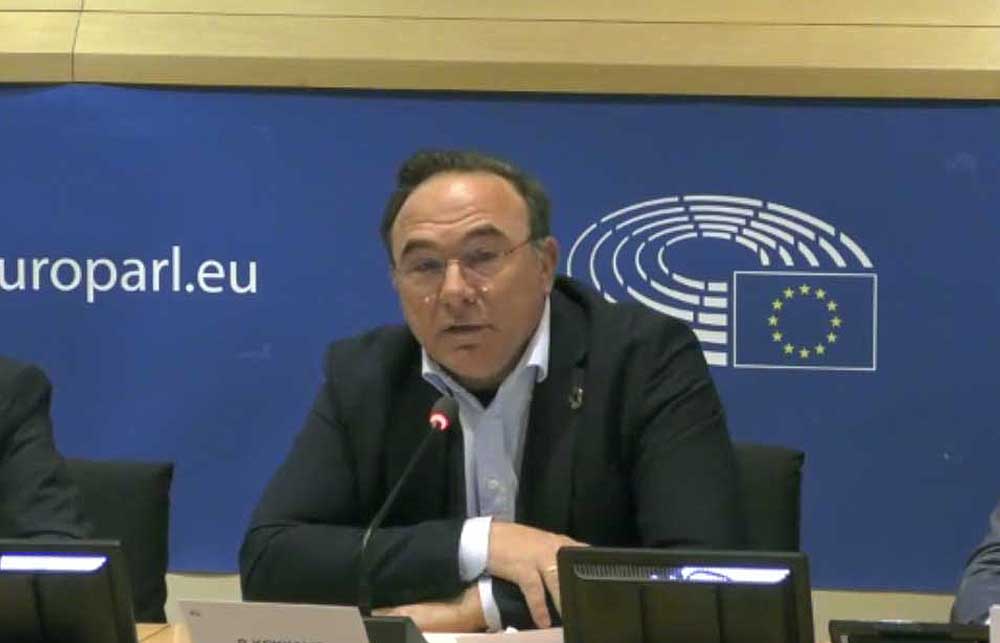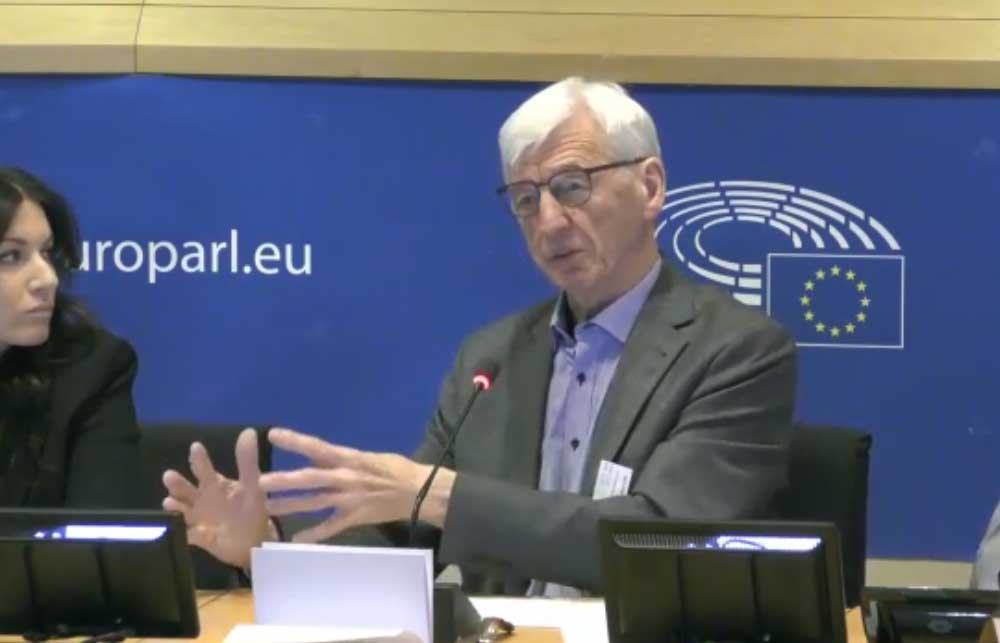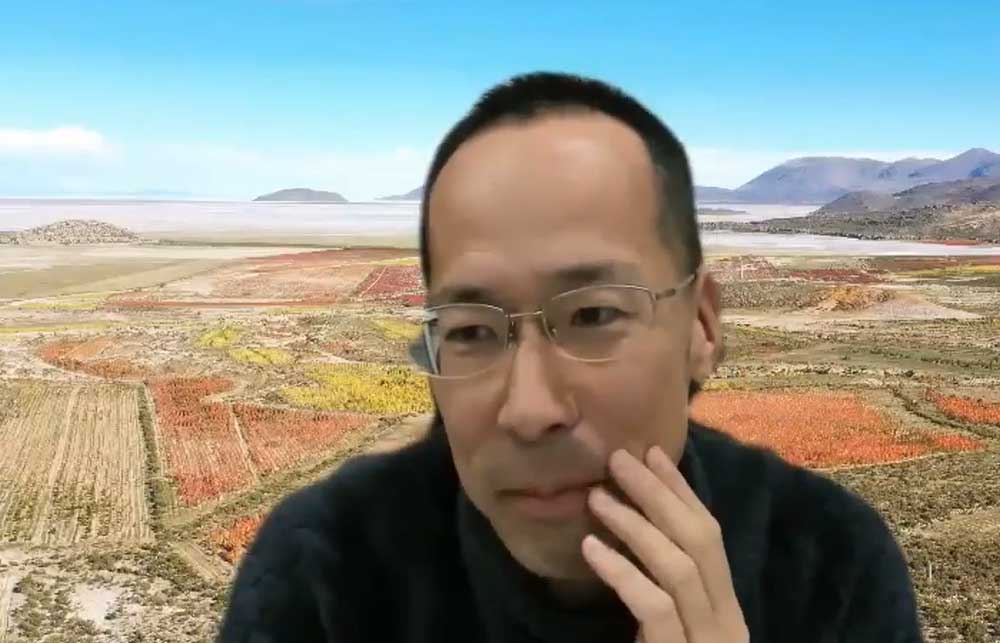2024 Digitalisation, AI and sustainable agriculture seminar summary
Thursday, Feb 08, 2024
Introduction and setting the scene
Artificial intelligence is suddenly all around us and people have adapted to using it at lightning speed. What is not clear yet is how digitalisation and AI will change agriculture. What are the challenges and opportunities? Will there still be farmers on the land? Will humans still make decisions? What role can policy play? With these questions Jurgen Tack, Secretary General, European Landowners’ Organization, opened the session, the latest in a number of discussions and events on the topic. He invited panellists and guests to deepen the conversation, focusing on digitalisation and data in agriculture and particularly the challenges around data in Europe’s rural areas.
Three panellists set the context: Tassos Haniotis, Special Advisor for Sustainable Productivity, Forum for the Future of Agriculture, and MEPs Franc Bogovič and Petros Kokkalis.
Mr Haniotis kicked off with the mixed picture we see from the many references to digitalisation and AI we see around us. Some are optimistic, some highlight risks. The reality is neither black nor white. Technologies are neutral, and it is their uses that should concern us. Agriculture has always been at the front of technology development, especially digital applications, and Europe should be very proud of how technology is already being used.
Digitalisation today is about data handling, Mr Haniotis said. Applications offer enormous potential for sustainable productivity but come with social costs in terms of widening the digital divide. Discussions need to address the root of people’s fears, and at the heart of that is the relationship between public use and private use or misuse.
Franc Bogovič introduced himself as a small farmer as well as an MEP. As someone who is close to rural farmers, he was keen to address how to ensure the digital gap between rural and urban areas does not increase. On one hand, Europe has seen success with “smart villages” with excellent connectivity. On the other, it needs to equal ensure access to more expensive advanced machinery. Young farmers are vital players, with their understanding of digitalisation and AI – but policymakers need an alliance with all farmers.
Petros Kokkalis emphasised the role of data and the need for harmonized data collection which has to be the foundation of evidence-based policy. “It’s really important to have this data and use evidence-based policy as a way to build back trust with farmers and consumers,” he said.
Session 1: Supporting an inclusive, sustainable and resilient digital future in agriculture: the role of policy
Data has a pivotal role: fundamental to AI, digitalisation and science-based policymaking. This was at the heart of the detailed and comprehensive keynote presentation given by Josse De Baerdemaeker, Professor Mechatronics, Biostatistics and Sensors (MeBioS), KE Leuven.
“Artificial intelligence starts with data and the challenges that come from that data as well as from the adoption of AI in agri-food,” said Professor De Baerdemaeker. “The value chain is not only a product chain but also a data chain.” Data is “possibly the new gold”, with data sources and outputs everywhere: data from weather, soil, seeds, water quality and water needs, historical yields, fertilizers, land management, satellite images, robots, harvest, storage and so on.
“Where are the challenges in those data?” he asked, adding that “We ask big things of data.” Vast volumes of data have to be shared, imported and exported, generating huge data traffic. One challenge is the balance between keeping the costs of technologies like sensors low, but making them robust and capable of delivering high-quality precision data when used in the field under harsh conditions. Connectivity is important. Quality and availability of data are essential for reliable AI development. And large data sets need high variability. The data must also be findable, accessible and interoperable, as well as reusable. And how do you clean up data and test it? Data quality is one thing, but models also need to be of high quality.
Ethics was also an important topic, as many of the issues and questions have to do with trust. “Who owns the data – that’s a question that goes around all the time,” said Professor De Baerdemaeker. And what about user acceptance? “Ethical use of data is one of the big concerns we have.” Data-based algorithms can have bias. He gave the example of an algorithm that maximizes profits, perhaps at the cost of depleting a farmer’s soil. On the other hand, bias can be positive – for example, a model that aims to maximize biodiversity.
This keynote presented a whistle-stop tour of the complex landscape the agri-food chain is facing. After setting it out with clarity, Professor De Baerdemaeker turned to some of the questions for policy-making on ethics, accessibility and the rights and expectations of farmers, of technology providers, and of the public.
One example was the question: do you store data for use in solving issues or disputes, as in an insurance claim. Another was: do we check AI models and certify them as fit for use? “Do we really have to make rules and regulations?” And he answered this himself: “You cannot just make students or companies responsible for marking their own homework”.
The policy perspective came next from Evangelia Mourmoura, Administrator, Data Protection and Governance, European Commission. Digitalisation is not a one-size-fits-all solution, but requires careful planning, investments and capacity building. A supportive policy environment plays a major role in 1) boosting the uptake of digital technologies by farmers and 2) unlocking the potential of data.
Talking about policy in action, she said the Common Agricultural Policy works alongside the EU strategy for data as well as research and innovation programmes. Member states have digital strategies for agriculture and rural areas. “Digitalisation connects and links the dots between all the operators. Policy has an important role to play so that everyone profits from the benefits of digitalisation.”
Organic agriculture was next on the panel’s agenda. Bram Moeskops, Managing Director, FiBL Europe, defined “sustainable agriculture” as being about agro-ecology. “Can digitalisation support agro-ecology?” he asked. To do so, it needs to support more complex systems, such as complex cropping practices, and not facilitate further intensification and expansion of monoculture. “It is about empowering the farmers, not making farmers slaves of the tools. Enabling the farmers to make better decisions, not just providing a recipe.” He also highlighted that digital technology is not “clean” because of its dependence on huge networks of energy-intensive physical devices. It is important to check not only the added value, but the true cost.
A positive perspective came from Greece, delivered by Grigoris Chatzikostas, VP for Business Development, FoodScale Hub. “We’ve observed some very positive aspects in the Greek ecosystem, for example, the first exit of a start-up company based on AI technologies in Greece.” The country is seeing many investments in start-ups and big companies acquiring stakes in them or developing AI internally. Greece is punching above its weight, thanks to a strong agri-food sector, ability to do more with less, and a supportive Government.
Digitalisation does not happen in a vacuum, and Mr Chatzikostas has two key suggestions: 1) that those in the ecosystem should understand that policymaking takes time and requires consensus, and take part in the process even if it seems cumbersome. 2) all players need to exercise empathy towards the perspectives of others.
He also sent a bold message to policymakers: “Identify the agents of change, the organic farmers, the young farmers, the start-up community, the hackers, the makers, and introduce them more into the dialogue.”
The final panellist to speak was Ornella Cosomati, Director Sustainability Policy, Microsoft. The company has been looking at how AI can be used for sustainability, she said. No sector can decarbonize without high-quality data and measurements. Microsoft’s mission is to build tools that can help individuals, organisations, and farmers. She mentioned Terrain AI, a modelling platform to be used in decision making, and being developed with European universities. It is currently being piloted by the Irish Government and food processors. More and more tools are being developed for science-based policymaking. What is vital is that there is equal access to tools for the entire value chain.
Wrapping up, Moderator Antoine Oger, Research Director, IEEP, reiterated how important it is to have the conversation about the role of policy to achieve an inclusive, sustainable and resilient digital future for agriculture.
Session 2: Out in the digital fields: opportunities, challenges and knowledge gaps
Looking away from policy and on to the land, Jurgen Tack opened the second session by turning to the opportunities, challenges and realities on farms.
Kaili Juppets, Procurement Agro Potato Director for PepsiCo Europe, shared a first-hand perspective on some of company’s advances under its commitment to “positive agriculture”. Accurate, complete, timely and robust data is vital to measure progress, she said. One of the company’s tools is I-crop, which provides a robust data set and an analytics dashboard. For example, it serves as an irrigation scheduling tool, matching irrigation to the needs of the crop. Another is a machine learning tool designed to optimize yields. “Tools bring a complementary viewpoint. They drive the discussion, they drive ways to look for value and improve,” she said.
Also in the field is a new type of ultra-precise, smart spot sprayer to combat weeds, coming from Ecorobotix. With 100 of the ARA sprayers already in use in Europe, some farmers have been able to reduce herbicide use by up to 95%, compared to a single sprayer, said Steve Tanner, CTO and Co-Founder, Ecorobotix. He described how the machine allows synthetic chemistry to be replaced with non-selective, simpler molecules, which degrade better.
Fusing together many, many data points and providing insights for better land management is the rationale for Downforce Technologies’ platform. The tool is designed to support land managers on the ground, said Beth Dooley, Head of Partnerships, by using both historical data and data from satellites and remote sensing. “We’re very data hungry. We fuse together stacks of data to understand at 10 metre by 10 metre resolution a land parcel anywhere in the world,” she explained. The goal is to understand what happens when land interventions are made, from carbon sequestration to biodiversity assessments.
The technology can be used at farm level or at scale, providing insights into various elements including soil, organic carbon and biodiversity. The insights are being used throughout the agri-food value chain, from farms, to food and beverage companies, cotton growers to local councils.
Variability in the results coming out of the platform is a challenge. This comes from variability in the landscape and sometimes limited data. Downforce is continuously trying to enhance data sets and see how they fit together to reduce this variability.
Leaving Europe for a moment, how can AI benefit developing countries? Dr. Keisuke Katsura, Associate Professor, Tokyo University of Agriculture and Technology, and his team have been investigating the question, mostly in West African countries.
Gathering accurate data about productivity and estimating yields is very different and more difficult than in Europe. Why? Farmers have very small fields, unsuitable for satellite remote sensing; there is large variation in area and growth, high harvest losses and difficulties in product traceability. Despite that, the Tokyo team has developed an app now being put into use in a number of African countries. They use image estimation technology, based on smartphone images, and image analysis technology based on deep learning.
With both policy and tangible examples thoroughly examined, Jurgen Tack turned to the question: What have we learned? And asked Petros Kokkalis and Thassos Haniotis to sum up their takeaways and say what advice they would give to the European Parliament.
Respondents and closing
Petros Kokkalis highlighted that there is no standardized European system for gathering statistics – and all players need to go into rural areas, start-up villages and hubs to work on this. “We also have to look at the elephant in the room – the CAP. We need to break the silos and look at the food system not only as an agro problem, but as a public health problem.
“The big thing for the next Parliament would be to design the upcoming regional policy, cohesion policy instrument, and the new CAP in a way that talks into consideration the goals of the Green Deal, not only the climate goals, but also the toxicity goals, the pollution goals and so on.”
Tassos Haniotis said that digitalisation and AI are not about substituting human activity but complementing it. There is too much data, and it needs to be prioritized, harmonized and used to tell stories about how the sector can sustainably increase productivity. At the political level. Euope needs to avoid “slogans and polarization” and take a systems and holistic approach. And economic models need to incorporate not only environmental aspects but also prices. His final point was about soil: “our priority should be on soil, because if you do good things for soil, you do good things for air, water and biodiversity”.
Jurgen Tack closed with a down-to-earth thought: “The future is clearly in farming data. There is a saying that if you want a good, simple explanation, turn to sound farmers’ intelligence. I hope artificial intelligence is not going to change that.”
Watch the sessions on our videos page and read the report Artificial intelligence in the agri-food sector – applications, risks and impact by Josse De Baerdemaeker.
The full agenda and speakers for the event are available on the event page.




